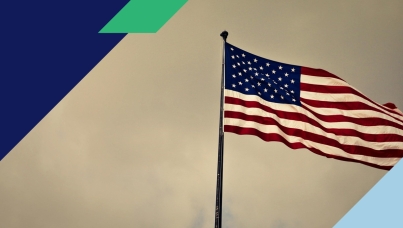About one in six Americans saw Barbie or Oppenheimer (or both) opening weekend
Washington DC, July 25, 2023—New Ipsos polling finds that 17% of American adults 18+ saw or planned to see Barbie, Oppenheimer, or both during their opening weekends (the data does not include any moviegoers under the age of 18). More women, younger Americans, and Democrats report seeing Barbie in its first weekend, though there are few demographic differences in those who saw Oppenheimer.
For those participating in “Barbenheimer”, the term coined for seeing both Barbie and Oppenheimer, only one in ten Americans (11%) intended to see both films on the same day. Instead, 89% planned to see the two films on separate days.
Detailed findings:
- Seventeen percent of Americans saw Barbie, Oppenheimer, or both opening weekend, with some notable differences by gender and age.
- That breaks down to 7% of Americans who saw Barbie, 5% who saw Oppenheimer, and 5% who saw both.
- Three times as many women than men saw Barbie (10% vs. 3%, respectively). Though, the gender difference is less pronounced among those who saw just Oppenheimer (3% women vs. 7% men) or both movies (4% vs. 6%).
- Younger Americans are more likely to have gone to just Barbie than older Americans (15% of those under 35 reports doing so vs. 6% of those 35-49 vs. 2% of those 50+). Those under 35 (8%) and respondents 35 to 49 (7%) are also more likely to say they saw or planned to see both Barbie and Oppenheimer than those 50+ (2%).
- Looking at the numbers by partisanship, twice as many Democrats as Republicans saw Barbie during its opening weekend (9% vs. 4%, respectively).
About the Study
This Ipsos poll was conducted July 21-23, 2023, by Ipsos using the probability-based KnowledgePanel®. This poll is based on a nationally representative probability sample of 1,024 general population adults age 18 or older.
The margin of sampling error for this study is plus or minus 3.3 percentage points at the 95% confidence level, for results based on the entire sample of adults. The margin of sampling error takes into account the design effect, which was 1.14 for all respondents.
In our reporting of the findings, percentage points are rounded off to the nearest whole number. As a result, percentages in a given table column may total slightly higher or lower than 100%. In questions that permit multiple responses, columns may total substantially more than 100%, depending on the number of different responses offered by each respondent.
The survey was conducted using KnowledgePanel, the largest and most well-established online probability-based panel that is representative of the adult US population. Our recruitment process employs a scientifically developed addressed-based sampling methodology using the latest Delivery Sequence File of the USPS – a database with full coverage of all delivery points in the US. Households invited to join the panel are randomly selected from all available households in the U.S. Persons in the sampled households are invited to join and participate in the panel. Those selected who do not already have internet access are provided a tablet and internet connection at no cost to the panel member. Those who join the panel and who are selected to participate in a survey are sent a unique password-protected log-in used to complete surveys online. As a result of our recruitment and sampling methodologies, samples from KnowledgePanel cover all households regardless of their phone or internet status and findings can be reported with a margin of sampling error and projected to the general population.
The data for the total sample were weighted to adjust for gender by age, race/ethnicity, education, Census region, metropolitan status, and household income. The demographic benchmarks came from the 2022 March Supplement of the Current Population Survey (CPS).
- Gender (Male, Female) by Age (18–29, 30–44, 45–59 and 60+)
- Race/Hispanic Ethnicity (White Non-Hispanic, Black Non-Hispanic, Other, Non-Hispanic, Hispanic, 2+ Races, Non-Hispanic)
- Education (Less than High School, High School, Some College, Bachelor or higher)
- Census Region (Northeast, Midwest, South, West)
- Metropolitan status (Metro, non-Metro)
- Household Income (Under $25,000, $25,000-$49,999, $50,000-$74,999, $75,000-$99,999, $100,000-$149,999, $150,000+)
For more information on this news release, please contact:
Mallory Newall
Vice President, US
Public Affairs
+1 202 374-2613
[email protected]
About Ipsos
Ipsos is one of the largest market research and polling companies globally, operating in 90 markets and employing over 18,000 people.
Our passionately curious research professionals, analysts and scientists have built unique multi-specialist capabilities that provide true understanding and powerful insights into the actions, opinions and motivations of citizens, consumers, patients, customers or employees. Our 75 solutions are based on primary data from our surveys, social media monitoring, and qualitative or observational techniques.
Our tagline "Game Changers" sums up our ambition to help our 5,000 customers move confidently through a rapidly changing world.
Founded in France in 1975, Ipsos has been listed on the Euronext Paris since July 1, 1999. The company is part of the SBF 120 and Mid-60 indices and is eligible for the Deferred Settlement Service (SRD).ISIN code FR0000073298, Reuters ISOS.PA, Bloomberg IPS:FP www.ipsos.com



